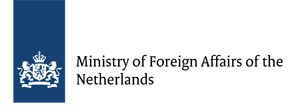Themes
| FREEDOM ONLINE COALITION2013: TUNIS CONFRENCE THEMES |
| Theme 1: Towards an internet free and secure |
Coalition members support the principle that all people enjoy the same human rights online as they do offline. In recent years debates about digital rights and internet freedom have highlighted the need for an internet both safe and secure in balance with the free exercise of those rights. While threats of cybercrime and cyber security are real, some approaches to counter those threats could potentially undermine civil liberties and balkanise the internet. It is necessary to pursue approaches to cyber security which upholds human rights standards and values. This thematic discussion will explore how governments and other stakeholders can assure ample cyber security measures to protect citizens operating online, while working from the basis of an open, accessible and transparent internet.
Workshop 1.1: Cyber security and human rights
Description: This session will explore the notion of basing our idea of cyber security upon human rights standards and values and how this reframing of the issues could apply to the MENA region/Africa/Tunis. Moderator: Dixie Hawtin
Workshop 1.2: Promoting standards – the role of civil society and intergovernmental organisations
Description: This session will look at the various soft law standards and approaches that have been established to protect human rights online and the challenges in realizing them (with an emphasis on how these could apply to regulatory challenges in the region). Moderator: Meryem Marzouki
Workshop 1.3: Change and challenges – user perspectives from the MENA region
Description: It is widely assumed that digital communications - satellite TVs, social media and cell phones, disrupted “durable authoritarianism” of the region. In the aftermath how do government seek to manage this fast changing “new media” environment and what implications does this have for the users of digital technologies in the region?
Moderator: Hisham Almiraat
Workshop 1.4: Government and surveillance
Description: When governments monitor online communications, what constitutes arbitrary interference – what is justified and not justified in human rights terms? What safeguards are needed for government surveillance to be lawful under international human rights law? This session will look at examples of best practice that could serve as models for policy makers. Moderator: Eric King
Workshop 1.5: Positive actions to combat intolerance
Description: This session will look at questions of hate speech from the point of view of building a culture of tolerance rather than imposing restrictions upon speech; of the challenges in learning to live with diverse viewpoints that some may find offensive. Moderator: Andrew Puddephatt
Workshop 1.6: Dealing with an authoritarian past
Description: Many countries undergoing transformation into democracies have to deal with an authoritarian legacy. This session will explore ways to assess that legacy, deal with the pervasive history of surveillance and repression, what records to keep, and how to respond to past perpetrators. Moderator: Pavel Fischer
| Theme 2: Digital development and openness |
Workshop 2.1 Access and affordability – perspectives from the South
Description: This session will provide a Global South perspective on digital development. Speakers from developing countries will highlight issues specific for their environments and explore ways to tackle them.
Moderator: Pranesh Prakash
Workshop 2.2: Access and affordability – defining roles and responsibilities
Description: For the internet to benefit everyone there is a need for access to an internet that is open for innovation. This session will explore the respective roles of governments, the private sector, technical developers and civil society and the partnerships between these different actors to address the barriers to affordable access.
Moderator: Ben Scott
Workshop 2.3: Accessibility and inclusion for women
Description: This session will look at the barriers facing women seeking to use the internet and the means by which they can be overcome. An emphasis will be given to challenges facing women in Africa and the MENA region. Moderator: Jac SM Kee
Workshop 2.4: Development and innovation: making the case for net neutrality
Description: This session will look at why net neutrality is a crucial development issue. Does network neutrality help, or hinder, development? Are there any examples we can draw upon? What are the current challenges to network neutrality and how should we respond to them? Moderator: Cynthia Wong
Workshop 2.5: Barriers to innovation in development – the problem of copyright
Description: This session will look at copyright and its complex relationship with broader development issues. What is the role of copyright protections in enabling economic, social and cultural development? Which copyright protections undermine development? This session will argue for a re-conception of copyright interests which ensures that development is a primary concern.
Moderator: Hisham Almiraat
| Theme 3: Supporting privacy and transparency online |
As the instigators and builders of the technology and infrastructure that form ICTs and the internet, industry has a large and growing impact in debates about rights online. Companies increasingly have access to a wide range of user data. They respond to government requests on law enforcement and lawful interception, which can raise important questions about transparency and civil liberties protection for users. There are also important questions about how privacy can be integrated into the development and innovation of technology. This thematic discussion will explore the roles and responsibilities of companies in interacting with users and governments.
Workshop 3.1: UN guiding principles on business and human rights - state duty to protect, corporate responsibility to respect, and access to remedy
Description: This session will look at benefits of, as well as possibilities and challenges in implementing the Ruggie framework in the ICT industry through local and international initiatives. Moderator: John Kampfner
Workshop 3.2: Privacy and data protection: the challenges of big data
Description: The mining of data by companies is a pervasive feature of current business models on the internet. But while big data presents opportunities for businesses, it also poses new challenges for protecting user rights online. This session will look at best mechanisms for protecting privacy and explore the value of national regulation, self–regulation, and normative standards. What are the lessons that can be learned internationally and how do they apply to the region? Moderator: Ben Wagner
Workshop 3.3: Emerging technologies and future challenges to upholding human rights online
Description: We are seeing an emergence of new technological capabilities – IMSI catchers, nation-wide interception capabilities, hacking tools, and Trojans – that pose new challenges to upholding human rights online. This session will explore different ways to tackle these challenges and protect human rights online and look at the value of legal solutions, as well as responsibilities of engineers to design systems that enhance data protection. Moderator: Jillian York
Workshop 3.4: Transparency reporting: private and public sector roles and responsibilities
Description: A small but growing number of Internet companies are publicly reporting data on requests for user data from law enforcement agencies and content removal requests from governments and copyright owners. What are the respective roles and responsibilities of public and private sector actors for transparency reporting on takedowns and data requests, and how can civil society organizations most effectively use publicly available data to advocate for effective legislation and regulation?
Moderator: James Losey

















